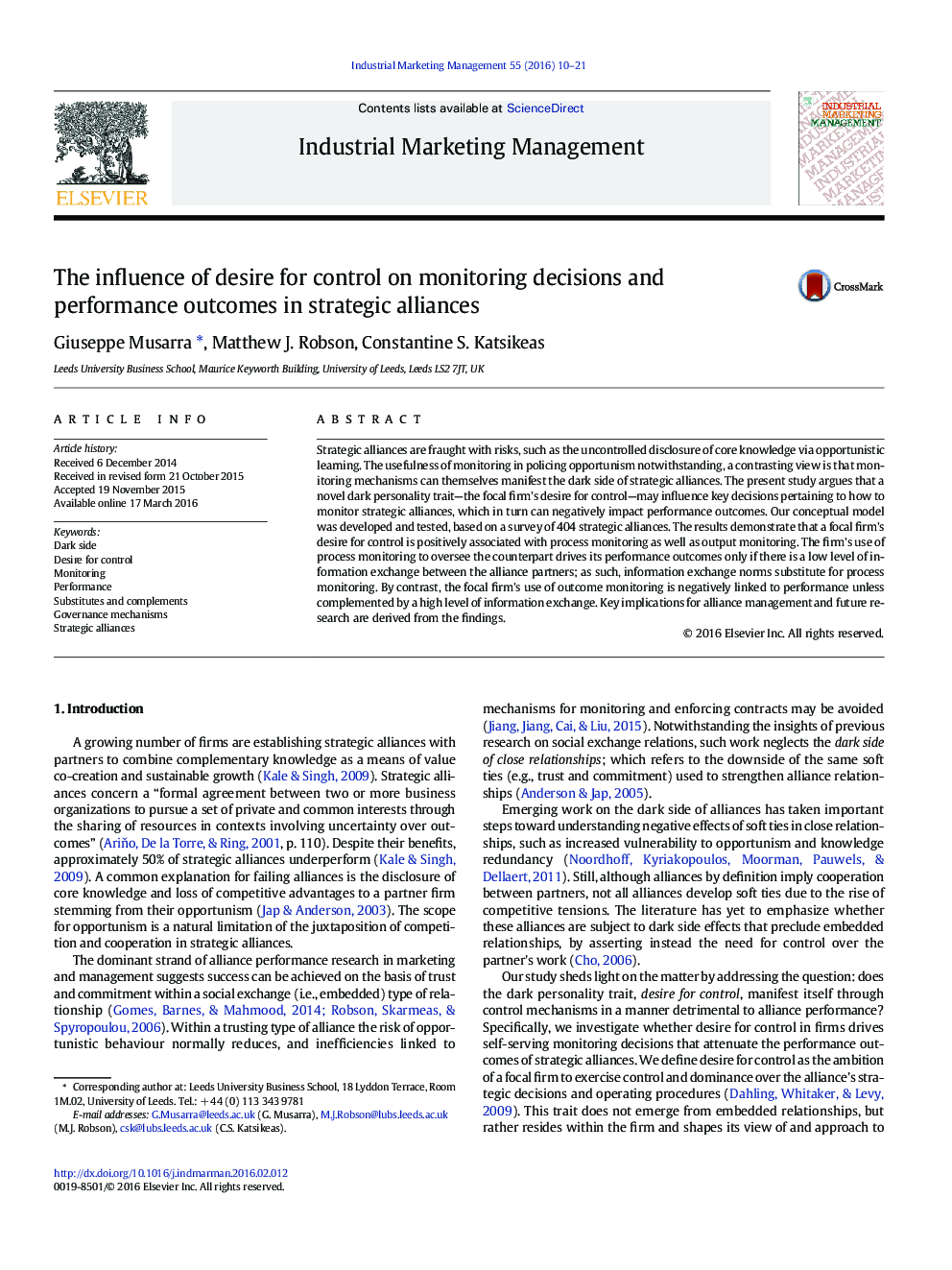| Article ID | Journal | Published Year | Pages | File Type |
|---|---|---|---|---|
| 7432466 | Industrial Marketing Management | 2016 | 12 Pages |
Abstract
Strategic alliances are fraught with risks, such as the uncontrolled disclosure of core knowledge via opportunistic learning. The usefulness of monitoring in policing opportunism notwithstanding, a contrasting view is that monitoring mechanisms can themselves manifest the dark side of strategic alliances. The present study argues that a novel dark personality trait-the focal firm's desire for control-may influence key decisions pertaining to how to monitor strategic alliances, which in turn can negatively impact performance outcomes. Our conceptual model was developed and tested, based on a survey of 404 strategic alliances. The results demonstrate that a focal firm's desire for control is positively associated with process monitoring as well as output monitoring. The firm's use of process monitoring to oversee the counterpart drives its performance outcomes only if there is a low level of information exchange between the alliance partners; as such, information exchange norms substitute for process monitoring. By contrast, the focal firm's use of outcome monitoring is negatively linked to performance unless complemented by a high level of information exchange. Key implications for alliance management and future research are derived from the findings.
Related Topics
Social Sciences and Humanities
Business, Management and Accounting
Marketing
Authors
Giuseppe Musarra, Matthew J. Robson, Constantine S. Katsikeas,
